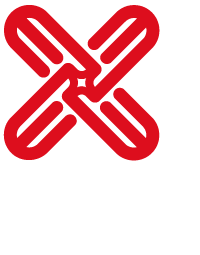 In the business world, the terms "startup" and "small business" are often used interchangeably, but they actually refer to different types of ventures. While there is no universally accepted definition for either term, there are some general distinctions that can help clarify their differences.
In the business world, the terms "startup" and "small business" are often used interchangeably, but they actually refer to different types of ventures. While there is no universally accepted definition for either term, there are some general distinctions that can help clarify their differences.
-
Purpose and Growth Potential:
Startups are typically founded with the intention of developing and scaling an innovative business model, product, or technology. They aim for rapid growth and disruption within their industry. Startups often seek significant investment and have high-risk, high-reward potential.
Small businesses, on the other hand, are usually established to provide goods or services in a specific market. They tend to focus on long-term sustainability and steady growth, rather than rapid expansion. -
Innovation and Scalability:
Startups are characterized by their innovative and disruptive nature. They introduce new ideas, products, or services that aim to solve a problem or meet an unfulfilled need in the market. Startups often leverage technology or unique business models to create scalable solutions that can be replicated and expanded quickly.
Small businesses, while they may innovate within their niche, typically operate in established markets with less emphasis on radical disruption or scalability. -
Funding and Investment:
Startups often rely on external funding to fuel their growth. They seek investments from venture capitalists, angel investors, or other sources of capital to finance product development, marketing, and expansion. In exchange for funding, investors often receive equity or a stake in the company.
Small businesses, on the other hand, are often self-funded or financed through traditional means such as loans, personal savings, or family investments. They may not require substantial outside investment and tend to focus on steady cash flow and profitability. -
Risk and Failure:
Startups operate in an environment of uncertainty and high risk. They face a higher likelihood of failure due to the challenges associated with scaling a new business model or technology. Failure is seen as a learning experience, and many startups iterate and pivot based on market feedback.
Small businesses, while they still face risks, often have a more stable and established business model. They aim for longevity and sustainability rather than taking on high-risk ventures. -
Organizational Culture:
Startups are known for their entrepreneurial and dynamic culture. They often have flat hierarchies, embrace experimentation, and foster a fast-paced, innovative environment. Employees in startups are typically encouraged to take risks and wear multiple hats.
Small businesses, on the other hand, tend to have a more traditional organizational structure. They may have a smaller team with defined roles and responsibilities and a focus on customer service and building long-term relationships.
It's important to note that these distinctions are not absolute, and there can be overlaps between startups and small businesses. Some startups may eventually transition into small businesses as they mature and stabilize their operations. Additionally, the definitions and characteristics of startups and small businesses can vary depending on the industry, region, and individual perspectives.


